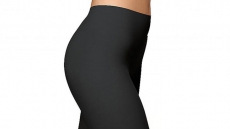With school out and vacations in full swing, Canadians will be spending more time outdoors soaking up the sun.
According to the Vitamin D Society, summer is the best time for Canadians to naturally generate vitamin D, which has many positive effects, including reducing the risk of developing serious diseases, such as cancer, cardiovascular disease, diabetes, multiple sclerosis, osteoporosis and others.
Dr. Reinhold Vieth, Scientific Advisor for the Vitamin D Society and professor at the University of Toronto, says that in addition to generating vitamin D, sunlight is known to improve mood and wellbeing. However, because of Canada’s northern latitude, our timeframe for getting the most from the sun’s rays is short – from May to October.
“Right now, we are in vitamin D summer. When the UV index is above 3 and your shadow is shorter than your height is when you can make vitamin D.” says Dr. Vieth. “For years, many strands of research have shown that people who are active in sunshine are healthier than those who avoid sun. We often assume that the health benefits of sunshine are solely due to vitamin D, but that is not proven yet. In other words, it is likely that sunshine does more for our bodies than just produce vitamin D.”
According to Cancer Research UK, enjoying the sun safely, while taking care not to burn, can help to provide the benefits of vitamin D without unduly raising the risk of skin cancer.
The Vitamin D Society encourages Canadians to use their time in the sun wisely to stock up on the sunshine vitamin but to remember to use common sense and not let skin burn.
Follow these tips from the Vitamin D Society to generate your vitamin D and stay sun safe this summer:
1) Remember, everything in moderation, including your time in the sun. Don’t burn!
2) Vitamin D is generated naturally in the human body when your skin is exposed to UVB rays. In Canada, UVB can only be captured by your skin during the mid-day hours so at this time of the year, you’ll need to go outside between 10 am and 4 pm. It’s also worth noting that UVB rays do not penetrate through window glass so you cannot make vitamin D, and you won’t get a burn from sun shining in through a window.
3) Get to know your skin type to understand how long you can spend outside before risking sunburn. For example, if you have red hair and very light, fair skin, you cannot spend much time in the sun unprotected.
4) When it comes to generating vitamin D, more frequent but shorter sun exposure lengths is best. For even better results, exposing more skin to the sun means a greater amount of vitamin D will be created.
5) The time required to make sufficient vitamin D varies according to a number of environmental, physical and personal factors, such as skin tone, but is typically short and less than the amount of time needed for skin to redden. The best way to generate vitamin D is by going out into the sun for 15-30 minutes, 2-3 times a week but if you burn easily you should adjust your time in the sun accordingly. After you’ve received enough time in the sun, apply sunscreen or sun protective clothing.
6) Your skin adapts to UV exposure naturally and your tolerance will build up gradually as your skin becomes conditioned to the sun and starts to tan. This will allow you to receive more sun exposure in late August, for example, than early May because your skin has acclimatized and is now more conditioned to the sun. Once developed, a tan will be there to help protect you and will complement the protection value of sunscreen.
Approximately 12 million Canadians — 35% of us — do not meet vitamin D blood level requirements set by Health Canada and the Institute of Medicine. This figure rises to more than 40% during winter, making spring and summer an important time for Canadians to naturally create vitamin D from sunlight.





